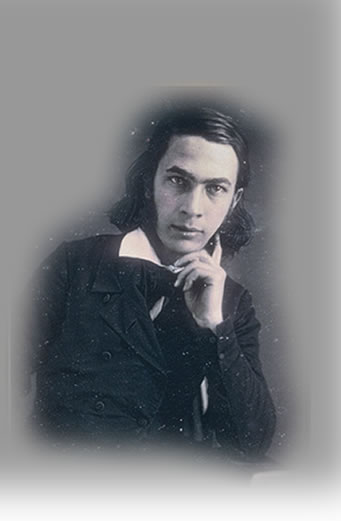
[K] The Spermaceti Papers
This series of satirical sketches
was the most highly realized of Lippard’s journalistic serial inventions
in the period of his emergence as a writer. It brought to its
fullest expression his critique of the insider politics, narrow moralism,
insipid taste, and hypocritical self-dealing that characterized (as
he represented it) the closed world of Philadelphia publishing at a
time when it was dominated by the George R. Graham Company and its many
publications. Lippard had published a couple of pieces in Graham
periodicals after leaving the Spirit of the Times in mid-1842.
His “Philippe de Agramont” appeared in the Saturday Evening Post
on July 9, 1842; “Herbert Tracy” appeared serially in six installments
in Graham’s United States Saturday Post and Chronicle between
Oct. 22 and Nov. 26, 1842. But his relations with Graham and his
coterie were not happy, and Lippard evidently was aware of his friend
Edgar Allan Poe’s troubled experience as an employee of the Graham
establishment as well. (Very likely Poe was providing him with
inside information about Graham and his cronies.) Eventually Lippard’s
distrust of Graham and his group, and his vitriolic hatred for what
he saw as their intellectual imbecility and moral hypocrisy, issued
in a series of unsparing allegories of literary parochialism, the “Spermaceti
Papers” and their continuation, the “Walnut Coffin Papers.”
Read More ...
Much of the detail in these sketches
tracks very closely the vicissitudes of Graham’s business maneuvers
during this time. His Saturday Evening Post did in fact
absorb two rival “mammoth weeklies” (as they were called), the
Saturday Chronicle (pub. Matthias and Taylor) and the United
States (pub Swain, Abell and Simmons). The newly-compounded
United States Saturday Post and Chronicle retained traces of its
two rivals in its elaborate new title, and in the first issue of the
merged weekly the editors crowed about their now-enhanced circulation,
as well as their ability to reduce their price because of an enlarged
subscription base and economies of scale in the production process:
clearly Graham was out to dominate the market and eliminate his rivals.
The subtitle of this new merged weekly was “A Family Newspaper, Neutral
in Politics: Devoted to General News, Literature, Science, Morality,
Agriculture and Amusement,” and in an editorial notice it promised
that the “Popular Tales” it published would be morally safe: “It
is devoted to the highest grade of light Literature, each number containing
three or four chaste original and selected TALES; which, while they
shall interest the young, shall at the same time point a moral.”
It is easy to imagine Lippard’s disgust at the prospect of Graham’s
growing domination of the market, coupled with his explicit political
disengagement, as well as his insipid moralism. All of this gets caricatured
very neatly (K1) in the account of how Spermaceti Sam “bought out”
two rival newspapers (here, the Salt River Journals and the
Saturday stick-in-the-mud), then blended them to form The Salt
River Saturday Stick and Universal Lamp-Post, “a new weekly, scientific,
religious and literary paper” dedicated to shallow and inoffensive
literary pablum.
In these pieces George R. Graham was
represented unkindly as “the Grey Ham.” Samuel P. Patterson, co-publisher
of the Saturday Evening Post, was caricatured as “Spermaceti
Sam.” “Professor Peter Sun” was a derogatory figure for
Charles J. Peterson, a prolific regular contributor of banal fiction
to Graham’s magazines. Rufus Wilmot Griswold, a famous
anthologist and editor (and therefore the maker of canons and reputations),
was mockingly christened “Rumpus Grizzle.” Plainly Lippard personally
resented their success, deplored their taste-making authority, and held
it against them that they looked askance at his wild style and robust
political engagement. But he also articulated in an engaging fashion
a serious critique of an American literary public sphere that had failed
to recognize, reward and honor superior writers like Charles Brockden
Brown (to whose memory Lippard would dedicate The Quaker City,
and whose underrecognized virtues he championed in a separate piece
reprinted below, M7), while celebrating unoriginal mediocrities like
Peterson.